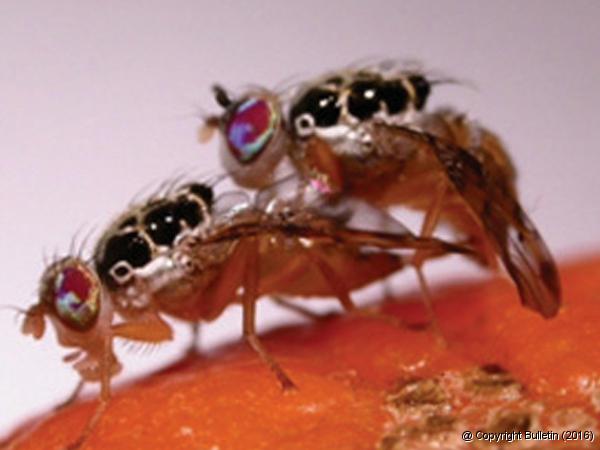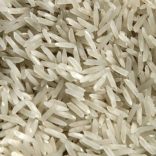Mozambique: President wants increased agricultural production to reduce imports
Strategies presented for tackling spread of fruit fly

Bulletn (File photo)
The Food and Agriculture Organization of the United Nations (FAO) has warned that the presence of fruit fly in Mozambique poses a threat to the commercial sector and to small-scale farmers.
This message was given by the FAO Representative in Mozambique, Castro Camarada, who warned: ‘the introduction and impact of tephritid flies present a major challenge to horticultural development for Africa affecting trade and reducing the potential for economic growth’.
He added that “the presence of fruit fly in Mozambique not only affects the commercial sector, but also small-scale farmers and informal traders that use fruit and vegetable production as a source of income”.
Camarada was speaking at a meeting held in Maputo by the FAO, in coordination with the International Atomic Energy Agency (IAEA) and the Eduardo Mondlane University.
About 20 representatives from African countries attended the regional initiative, which was held under the theme “Enhancing Capacity for Detection, Surveillance and Suppression of Exotic and Established Fruit Fly Species through Integration of Sterile Insect Technique with Other Suppression Methods”.
The invasive fruit fly was first detected in the country in 2007 in Cuamba district, in the northern province of Niassa. But since then it has spread to the rest of the country. To specifically deal with this problem, a fruit fly laboratory was established in Chimoio. Some of the first attempts to manage the spread of fruit flies in Mozambique were initiated by the FAO and included specialized technical support from the Kenya-based International Centre for Insect Physiology and Ecology (ICIPE).
According to Domingos Cugala, professor of Agronomy and Forestry Engineering at UEM, “we are advising producers to sanitize orchards, by applying proteins already formulated to combat the fly. We are also implementing biological controls by introducing natural enemies of fruit flies. But these measures are a little too expensive for farmers, so are only being implemented by the government and the Chimoio laboratory”.
The scientific director at UEM, Bettencourt Capece, explained some of the techniques being implemented to reduce the spread of the fly. He noted that “the current project constitutes an opportunity for the African region, and Mozambique in particular, to use sustainable fruit fly control methods, including the use of the Sterile Insect Technique based on radiation, which would not be possible for a single country to implement. This requires the assistance of IAEA specialists”.
The Sterile Insect Technique involves breeding male fruit flies and then sterilising them through exposure to a low dose of radiation. These are then introduced into the wild where it is planned that they will vastly outnumber the fertile male flies, leading to a devastating drop in the population in the next generation.













Leave a Reply
Be the First to Comment!
You must be logged in to post a comment.
You must be logged in to post a comment.